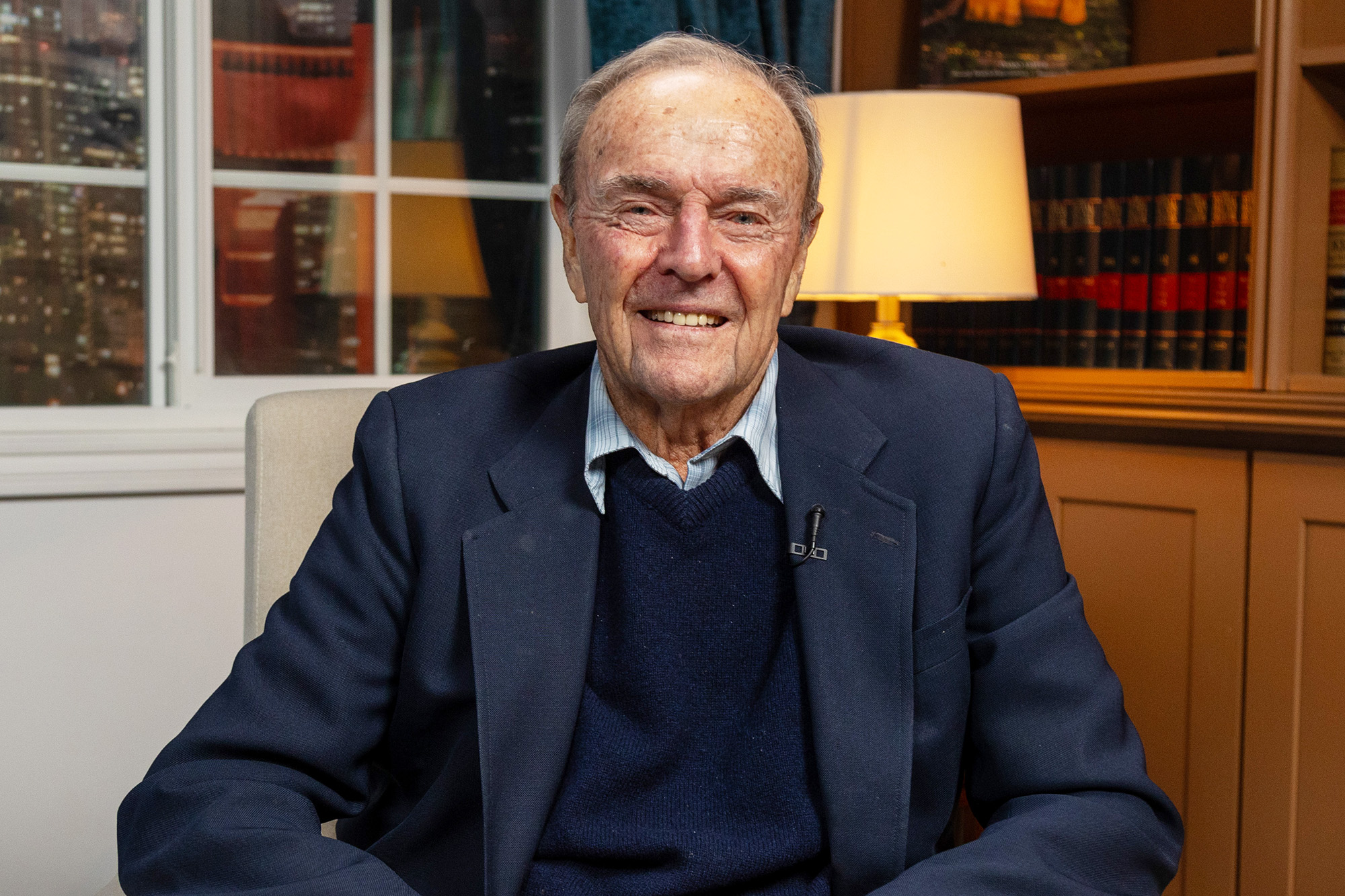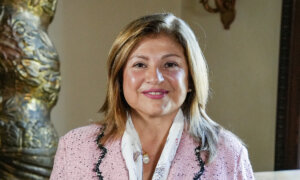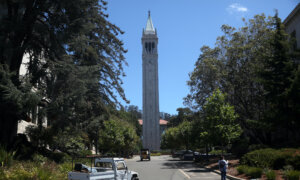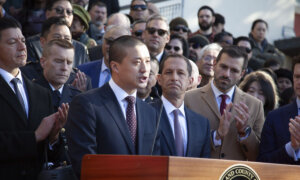What does it take to be a great coach? Leadership, innovation, and a culture of heart, according to Stanford’s legendary tennis coach Dick Gould.
On a recent episode of EpochTV’s “Bay Area Innovators,” he said he credits his early exposure to tennis.
Gould was born in a farming community in Ventura, California. One of his neighbors had a tennis court on his property and gave lessons.
Gould’s parents, knowing that their 11-year-old was fond of sports, suggested he go take a lesson with him. His coach taught him to play tennis by associating every move he made with another sport.
“He would say things like, Richard, you step into the hit. Like Rocky Marciano, the world champion boxer at the time, steps into his punch. You watch the ball come off your opponent’s racket, like Ralph Kiner watches the ball come out of the pitcher’s hand,” Gould recalled. “He made it really exciting, hitting the ball. And that was the first lesson I learned that really stuck with me for a long time as a teacher.”
Gould’s top student was John McEnroe, a legendary player. He played tennis all summer and qualified for the Wimbledon semifinals before attending Stanford. Throughout his career, McEnroe won 155 career titles.
But for Gould, McEnroe was one of the most loyal students he’s ever had. His pupil lobbied for his coach to be recognized in the Northern California Bay Area Sports Hall of Fame.
“At the induction, I was there, and he said, ‘And by the way,’ and he looks at me and points at me ... ‘here’s the next guy that should be in the Hall of Fame.’ And sure enough, they selected me for the next year, and that was all due to John’s lobbying on the spot in the ceremony itself,” said Gould.
In the span of four decades, he led his teams to win 17 national championships. Although he was victorious numerous times, he is always humble, crediting his players for their success.
One time, the late Jack Gifford, who was CEO of Maxim and Gould’s longtime friend, asked him how he won so much. Gould responded simply, “I get the best players.”
However, the question prompted him to think and wonder if there was more to it. By then, he had retired from coaching in 2004 and had become a director of tennis at Stanford University, and he set aside time to ponder the question. Gould came up with 20 questions that he thought might be relevant to answer Gifford’s question.
“Did we have a culture? Is trust important? How important are relationships with the team and without the team? Just a series of questions like this,” he said.
He sent the questions to 200 of his team members in 2018, and 166 of them responded.
“These weren’t yes or no questions. It took them a good two or three hours to respond. ... They were essay answers, and they really put a lot of time into it,” he said.
He collected about 1,500 pages and decided to sort them by question to create chapters and put together a book, “Anatomy of a Champion.”
“Some of them might be the same topic. There might be a couple topics merged into one chapter or separated into two chapters, something like that,” he said. “That’s the first time I gave any thought to coming up with a book.”
Gould included a favorite poem, “If” by Rudyard Kipling. He thinks it is a great example of how life should be lived. His wife, who does some calligraphy, wrote him a copy and enlarged it to place on some of his possessions.
Another favorite poem of his is “The Station” by Robert J. Hastings, which explains the importance of relishing the journey of life instead of rushing to meet the goal.
“It’s the journey toward the station. The station is endless, an endless track, and you just keep going and going and going,” Gould said. “So that was an important lesson to me, because it meant that, really, I had to do all I could to be sure my players enjoyed the journey. They did not take any win or one success as the be-all.”
One time, he and his team won a championship and one of his players, Mike Bryan, said he wanted to sleep with the trophy. Gould allowed him, but said he would have to bring it back and start practicing for the next year. Bryan later became the all-time world champion in doubles in history.
Because Gould was still working full-time, he spent his vacations in a room working on the book, which became the long answer to Gifford’s question. Unintentionally, he ended up making it a book about leadership, and he realized how important it is to lead by example and have culture.
“You don’t tell someone to do it, you just do it. If I want my courts clean and I walk by a piece of paper, if I pick it up and put it in a trash can, my players do the same thing. It’s not me telling them to keep the courts clean and throw the ball [and] cans away and so on,” Gould said. “If I treat people with respect and with dignity, whether it be the cleaning service or it be someone who sweeps the courts or just a maintenance man, or anybody, another coach, if I treat someone with respect, dignity, my players will do the same thing.”














